A New Approach to Understanding Autism
How a team of experts at UVA are bringing autism care into the 21st century
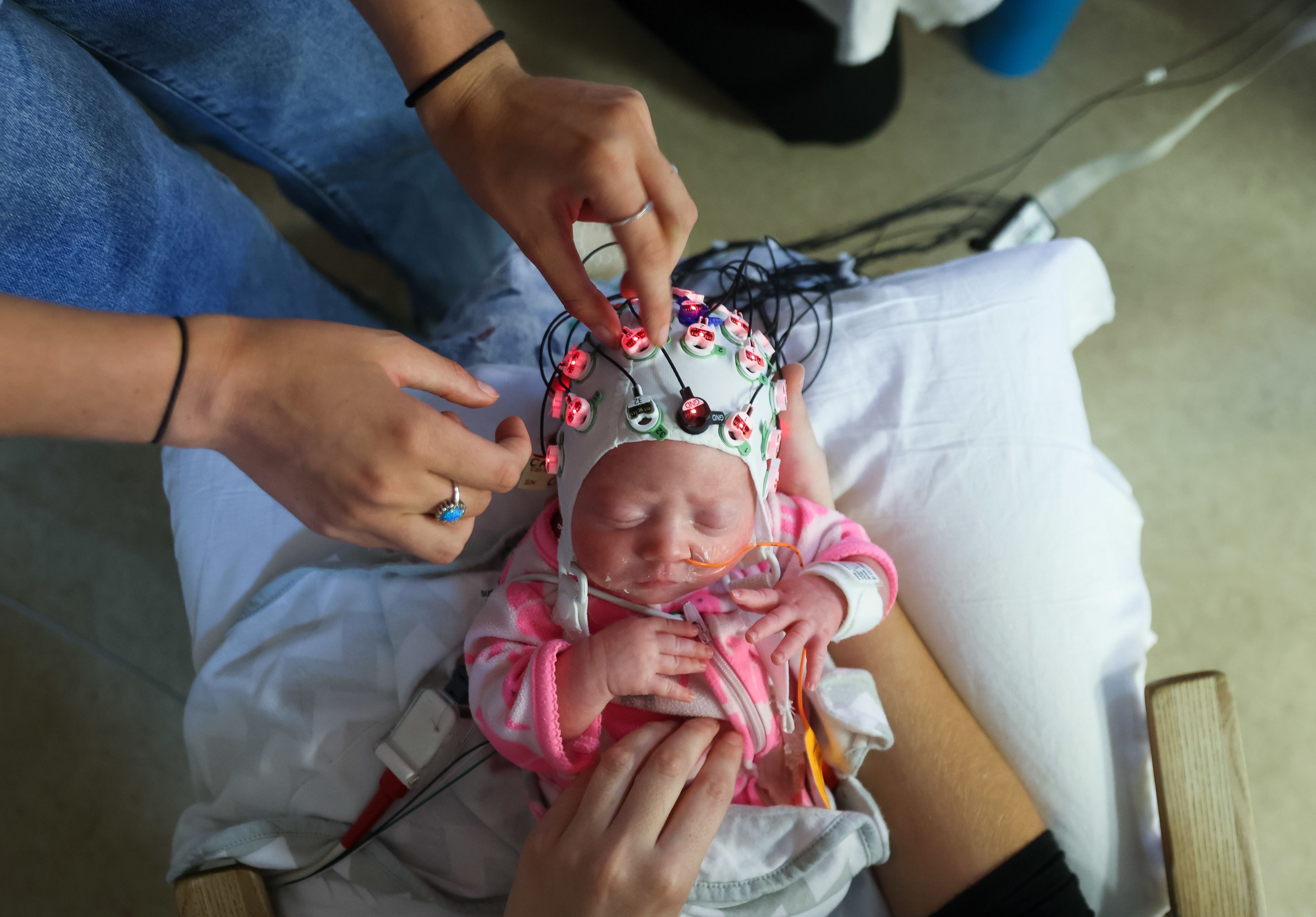
A Swiss psychiatrist named Eugen Bleuler coined the term “autism” more than a century ago. Bleuler introduced the term to describe patients with schizophrenia who exhibited extreme antisocial behaviors. Since then, the definition of autism, or autism spectrum disorder, as it is known today, has changed many times, and the scientific community’s understanding of it has come a long way. However, one aspect of the neurodevelopmental disorder has remained the same.
Today, autism is diagnosed based solely on an individual’s behavior, exactly as it was diagnosed by Bleuler more than 100 years ago. A biological test still does not exist to detect the disorder that affects one in 44 children in the U.S., up from one in 150 just 20 years ago.
Top research universities across the country have responded to this surge, as well as the lack of biologically based tools for detecting autism, by investing significant resources in brain research. Among those at the forefront is the University of Virginia.
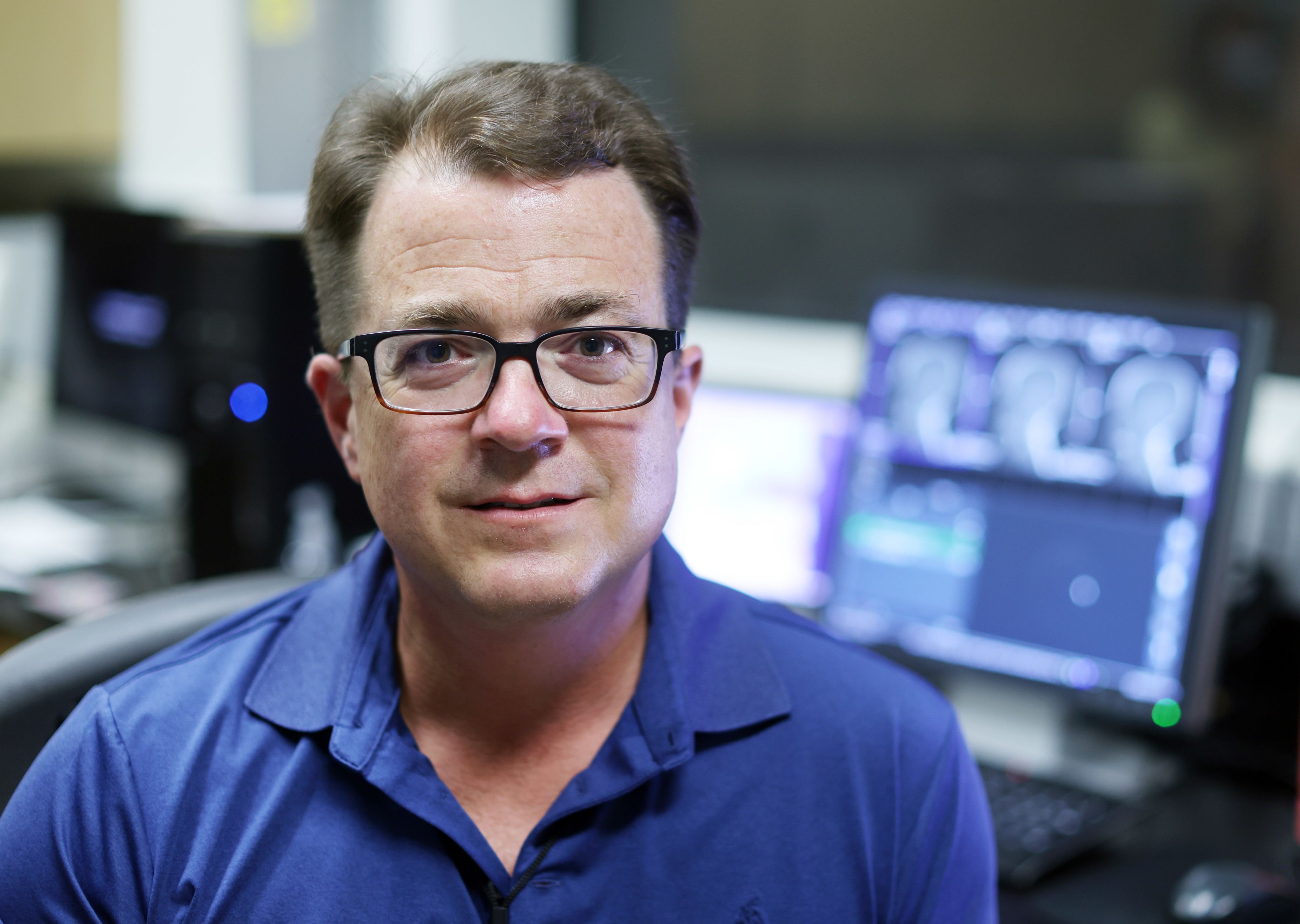
Dr. Pelphrey, an autism expert at UVA, oversees several research projects designed to deepen our understanding of autism.
Dr. Pelphrey, an autism expert at UVA, oversees several research projects designed to deepen our understanding of autism.
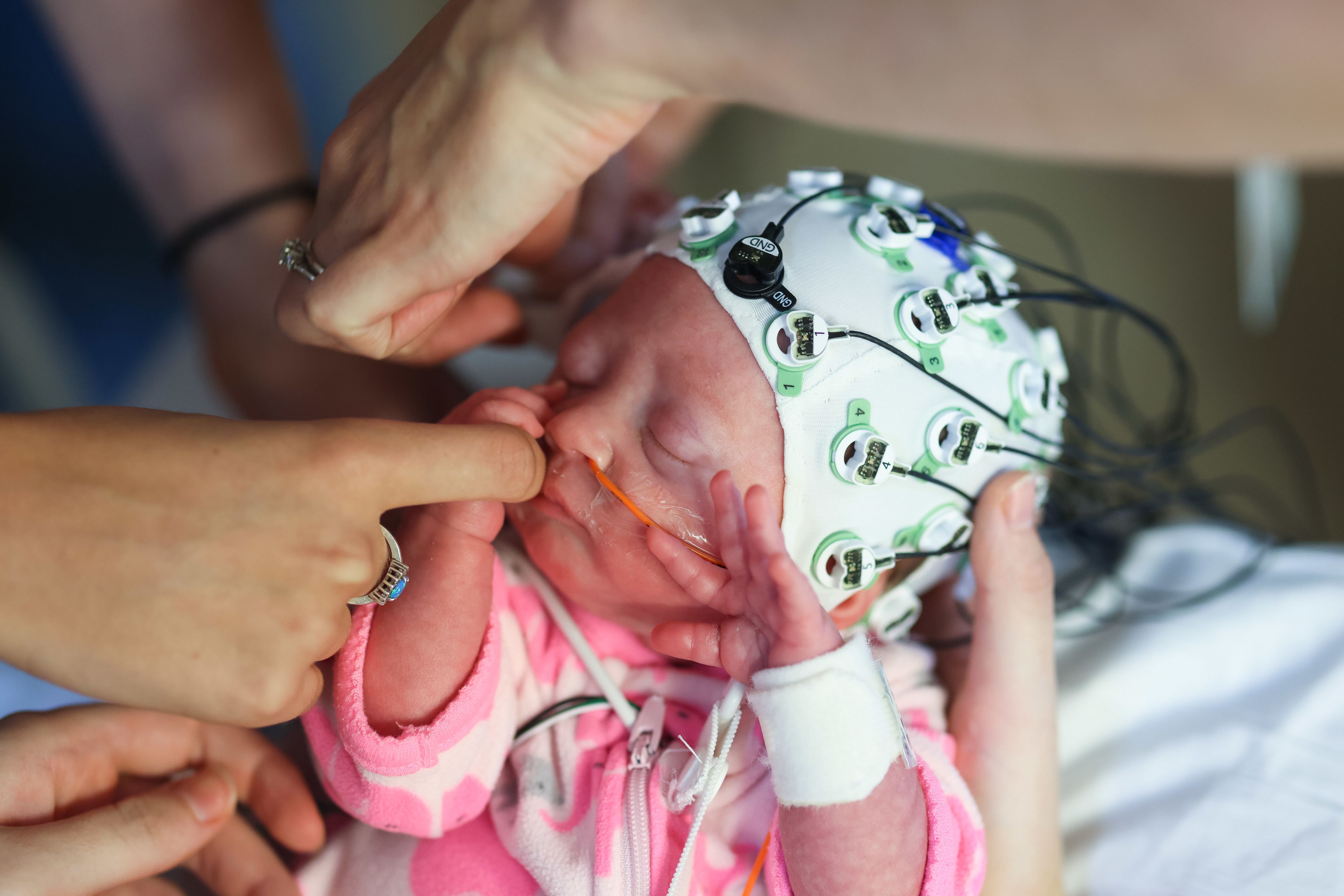
A pre-term baby in UVA’s Neonatal Intensive Care Unit undergoes an EEG, as researchers work to identify early biomarkers for autism.
A pre-term baby in UVA’s Neonatal Intensive Care Unit undergoes an EEG, as researchers work to identify early biomarkers for autism.
Dr. Kevin Pelphrey, an internationally renowned neuroscientist and autism expert at the University of Virginia, has assembled a coalition of researchers to take on an ambitious goal. Using a unique combination of genetics, brain imaging, and behavioral development, Pelphrey and his team aim to identify the biological markers for autism, and, in turn, develop tools to detect and treat individuals on the autism spectrum more effectively.
“As a neuroscientist, I want to understand how to move past defining autism strictly in terms of behavior and move into the underlying brain systems that are involved,” Pelphrey said. “Identifying the biological markers will tell us not only whether an individual has autism or not, but also the best pathways for treatment.”
Another important aspect of Pelphrey’s work is to explain how, and why, autism manifests differently in the brains of boys and girls. He hopes to be able to explain why only one girl for every four boys is diagnosed with autism spectrum disorder. “In neuroscience, it’s kind of a forbidden topic to talk about differences in girls and boys, but when it comes to autism, we are discovering there is a significant difference in the genes that underpin the condition,” he said.
In 2018, Pelphrey came to UVA from George Washington University, where he was the Carbonell Family Professor in Autism and the inaugural director of the Autism and Neurodevelopmental Disorders Institute. His recruitment to UVA, made possible by the Jefferson Scholars Foundation, an independent organization whose mission is to attract to UVA exceptionally talented students and faculty, was a major win for the school.
Having launched its Brain Institute just two years prior to Pelphrey’s arrival, UVA already had begun investing significant resources to accelerate autism research. Pelphrey’s groundbreaking work at leading institutions like Carnegie Mellon, Duke, and Yale made him an ideal candidate to help further the University’s efforts.
At UVA, Pelphrey works closely with the Brain Institute and the Supporting Transformative Autism Research, or STAR, initiative, and he holds dual appointments in the School of Medicine and the School of Education and Human Development as the Harrison-Wood Jefferson Scholars Foundation Distinguished Professor.
“The idea of having an endowed professorship is always a great thing,” Pelphrey said, “but this particular professorship is a critical part of my work and the reason I am at UVA. On so many levels, I couldn’t do what I do without it.”
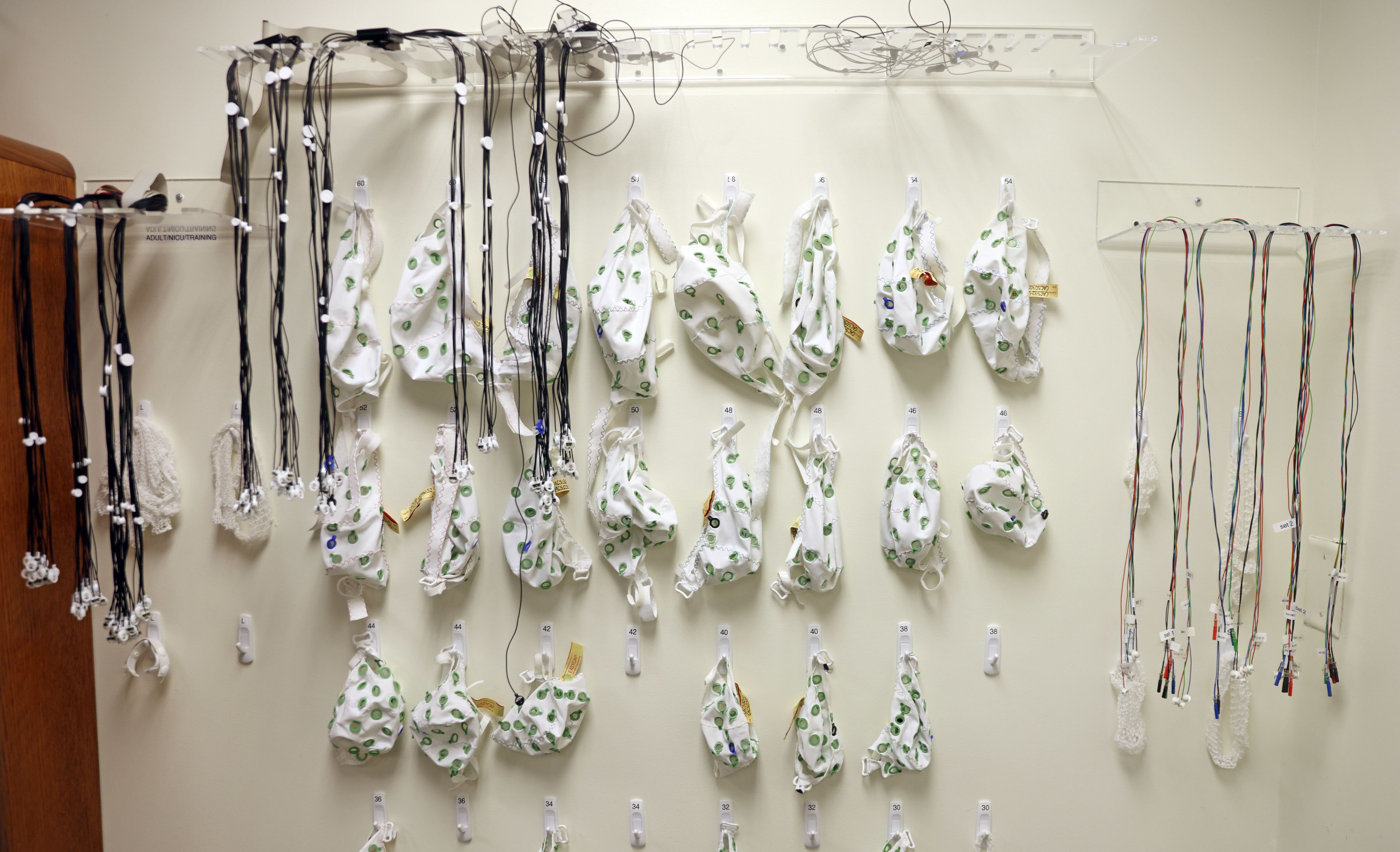
“As a neuroscientist, I want to understand how to move past defining autism strictly in terms of behavior and move into the underlying brain systems that are involved.”
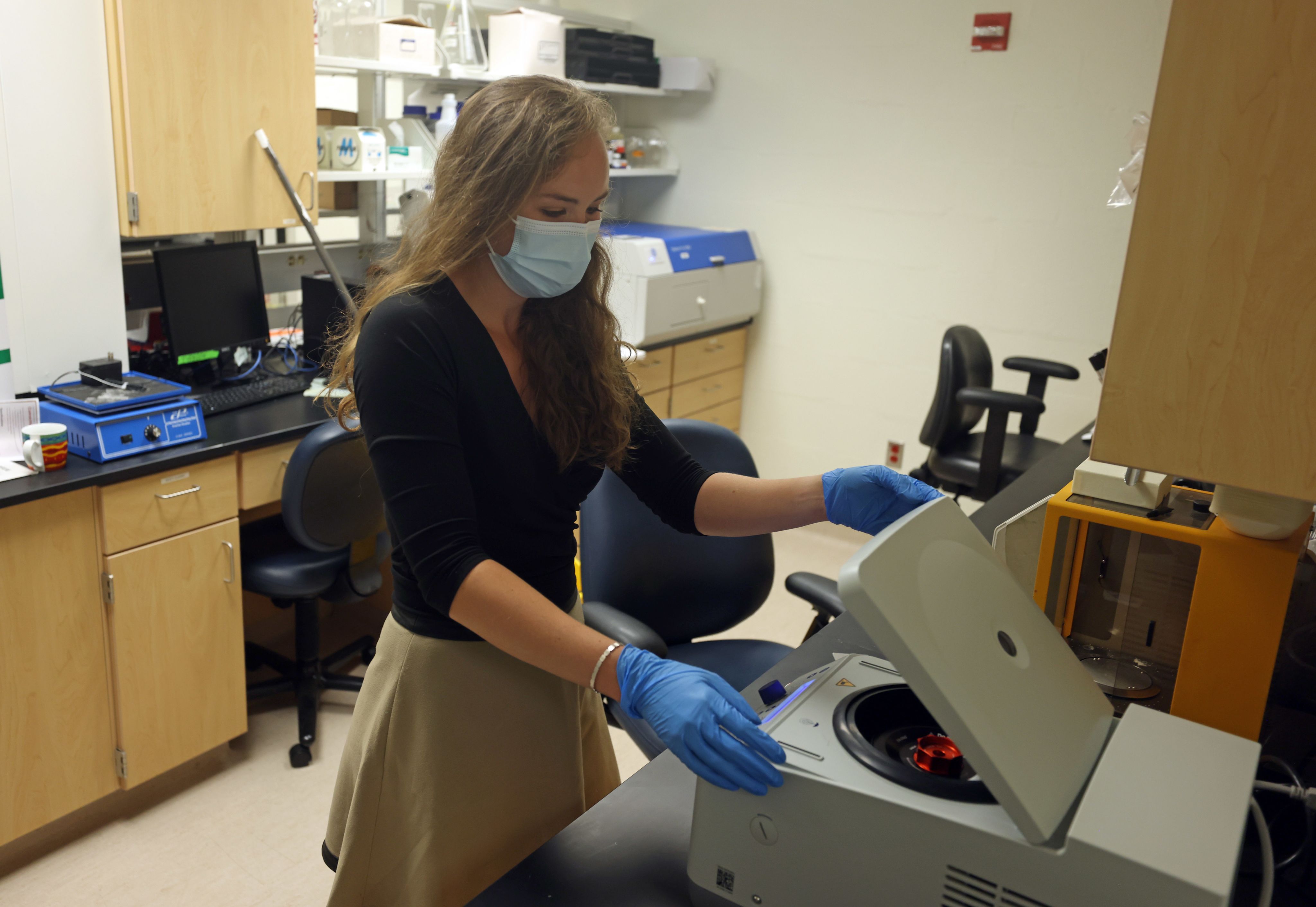
Cabell Williams, a UVA graduate student, gets ready to oversee the brain scan of a young baby using functional magnetic resonance imaging.
Cabell Williams, a UVA graduate student, gets ready to oversee the brain scan of a young baby using functional magnetic resonance imaging.
The Jefferson Scholars Foundation launched its Distinguished Professorship Program 10 years ago, and now has funding in excess of $165 million. Currently, Pelphrey is one of five professors funded by the Foundation, and a sixth professor will join in January 2023. Additionally, active searches are underway for seven more professors across multiple fields of study. One of the benefits these professors receive also happens to be one of the reasons Pelphrey views the professorship as integral to his work. Distinguished Professors funded by the Foundation receive full support for up to two graduate fellows to work alongside them.
Cabell Williams, a graduate student pursuing a Ph.D. in cognitive psychology at UVA, is one of the fellows funded by the Foundation and assisting Pelphrey.
“Cabell is doing something that’s never before been done at UVA,” Pelphrey explained. “She has completely set up from scratch a neuroimaging project to scan infants.” Pelphrey oversees Williams as she uses functional magnetic resonance imaging to monitor infant brain activity for the purpose of identifying early biomarkers for autism.
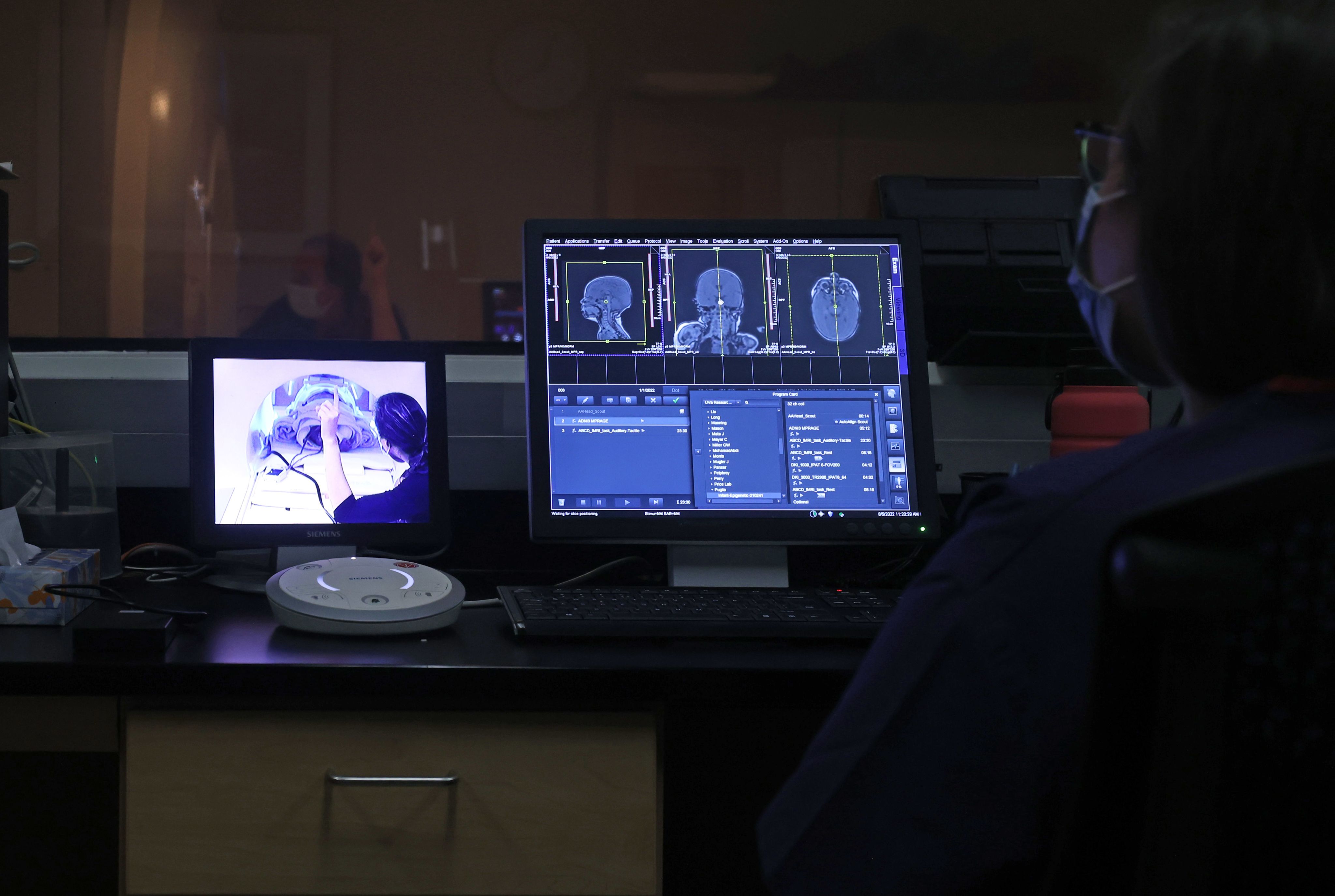
A team of researchers at UVA examine the brain of a young infant.
A team of researchers at UVA examine the brain of a young infant.
Williams describes Pelphrey as “a funding magnet” and credits him for her progress. She said, “He always tells me, ‘Don’t worry about the resources. Let’s go do science.’”
Williams, whose primary interest is studying how infants develop social cognitive processes, has always wanted to scan the brains of infants. “I thought it would be something I could do as a postdoc or possibly one day as a professor,” she said, “but Dr. Pelphrey was gracious enough to say let’s go for it. He was fundamental to making this dream become a reality.”
The support Williams receives as a fellow from the Jefferson Scholars Foundation frees up funding so that UVA can hire budding researchers like Meghan Puglia, a key member of Pelphrey’s team. Puglia, an assistant professor of neurology, works closely with Pelphrey and Williams and serves as the principal investigator of another autism study. Using electroencephalography on pre-term babies in the UVA Neonatal Intensive Care Unit, Puglia and her team also work to identify early biomarkers for autism.
While the link between autism and prematurity is not yet fully understood, studies show that the earlier a baby is born, the higher the likelihood that it will have autism. Puglia’s research may help shed light on the link.
“Typically, an autism diagnosis cannot be made until a child is 18 months, and even then, it’s entirely based on their behavior,” said Puglia. Puglia’s research team follows up with the infants they scan once they reach 18 months, so they can observe the child and do diagnostic testing.
With both studies led by Williams and Puglia underway, Pelphrey continues to focus his efforts on studying how autism differs in boys and girls. As the principal investigator of the ACE (Autism Center of Excellence) Program at UVA, which brings together experts from Harvard, Yale, UCLA, University of Colorado, the University of Washington, and Children’s National, Pelphrey combines brain imaging with genetic research to better understand why boys are four times more likely to be diagnosed with the condition.
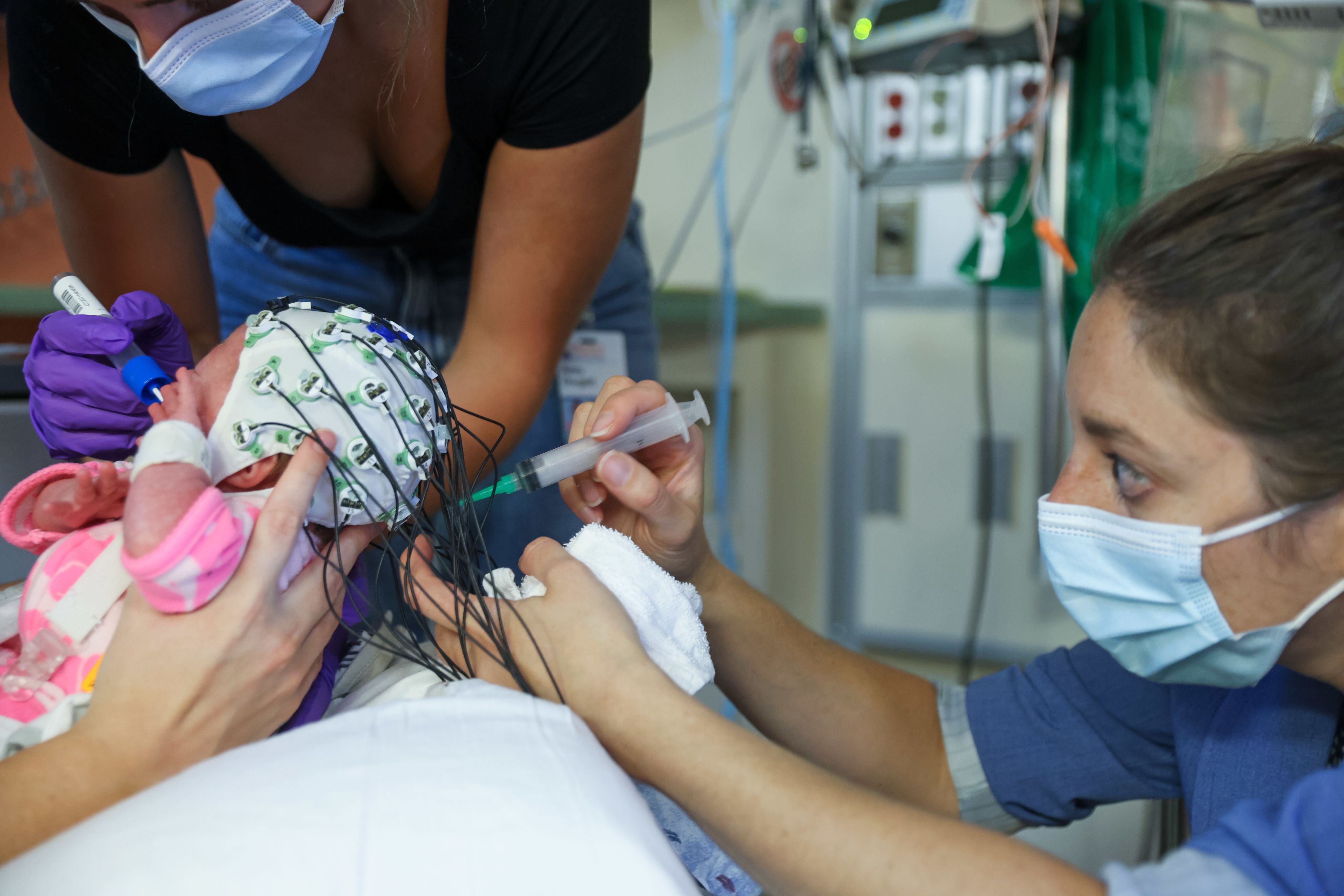
Saline gel is applied under the sensors of the EEG cap before conducting the brain scan.
Saline gel is applied under the sensors of the EEG cap before conducting the brain scan.
Moving forward, Pelphrey will broaden the research focus of ACE. In August 2022, the National Institutes of Health awarded Pelphrey and his team a grant to develop effective methods for identifying older autistic adolescents and adults. Late diagnosis, misdiagnosis, or never being diagnosed puts individuals with autism at greater risk for depression, anxiety, and self-harm, and can negatively impact their quality of life. Pelphrey and his team will use their findings to help older individuals with autism receive timely and appropriate services and support.
Ultimately, Pelphrey’s hope is that all four of these studies will generate better understanding of autism and lead to new treatment strategies tailored to individuals.
“If someone has autism, the treatment they get depends largely on where they happen to live, whether they live near a major university doing research on autism or not, or even which university they live near, as every institution recommends different approaches,” he said. “It’s the opposite of personalized care. It’s completely random, and it’s a waste of resources and time for these individuals and their families.”
Pelphrey believes that he and the team of experts UVA has working on this are in the right place at the right time. Using genetics, brain imaging, and behavioral development, they hope to bring autism care into the 21st century. “You may find places that use one or two of these approaches, but very few places use a combination of all three,” he said. “I can’t imagine doing this work anywhere else. Over the next few years, we will end up advancing our understanding and being a leader in the field. I have no doubt.”
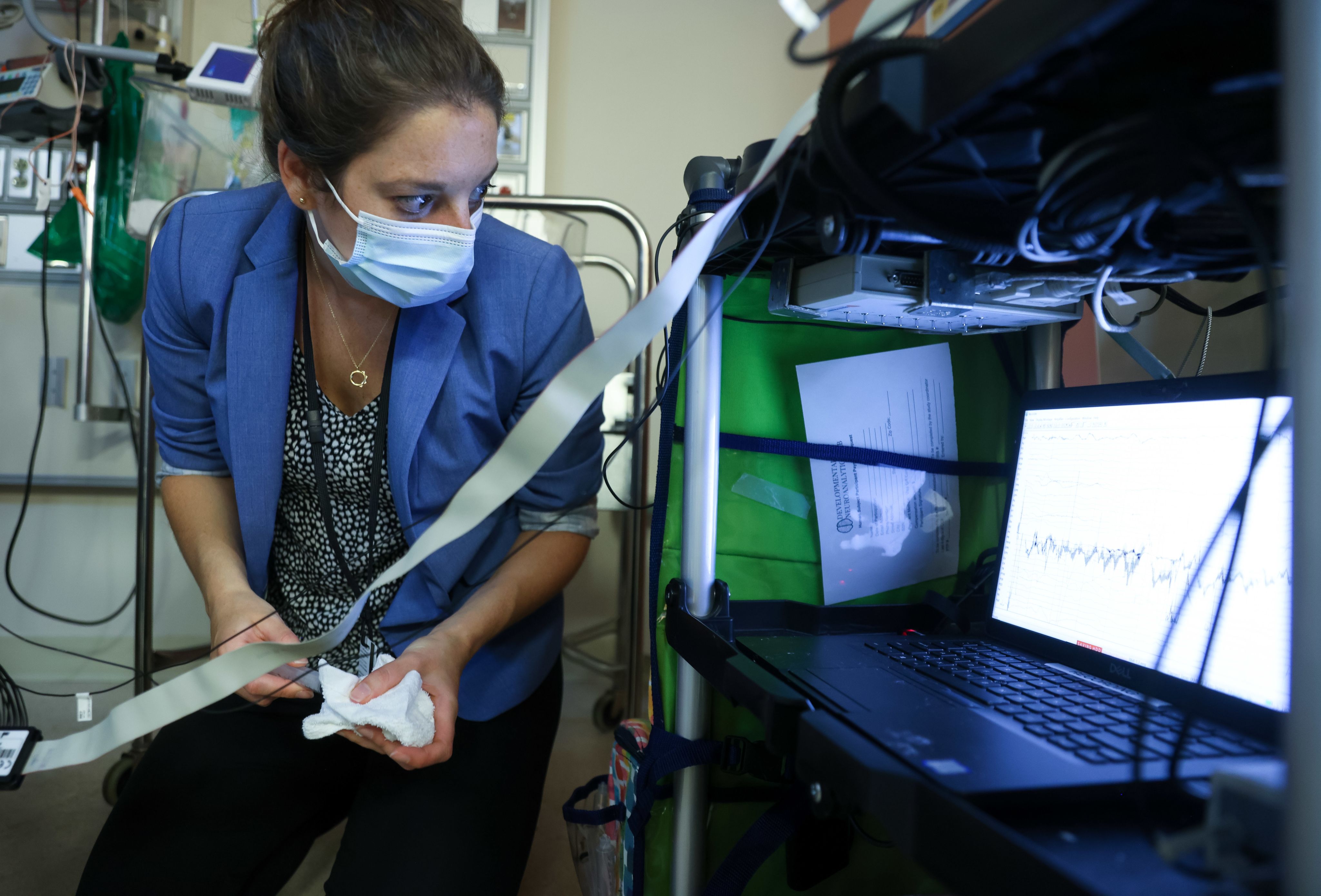
Dr. Puglia, assistant director of neurology at UVA, reads the scan she receives from a pre-term baby’s EEG.
Dr. Puglia, assistant director of neurology at UVA, reads the scan she receives from a pre-term baby’s EEG.

This content was paid for and created by Jefferson Scholars Foundation. The editorial staff of The Chronicle had no role in its preparation. Find out more about paid content.

